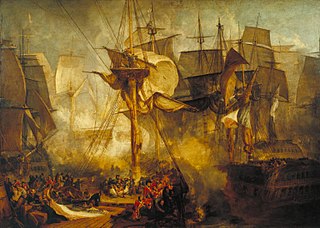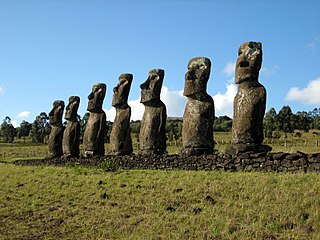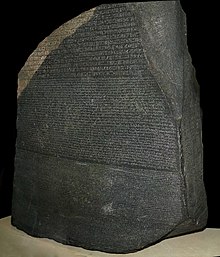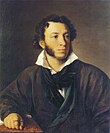
The 1770s was a decade of the Gregorian calendar that began on January 1, 1770, and ended on December 31, 1779. A period full of discoveries, breakthroughs happened in all walks of life, as what emerged at this period brought life to most innovations we know today.

1809 (MDCCCIX) was a common year starting on Sunday of the Gregorian calendar and a common year starting on Friday of the Julian calendar, the 1809th year of the Common Era (CE) and Anno Domini (AD) designations, the 809th year of the 2nd millennium, the 9th year of the 19th century, and the 10th and last year of the 1800s decade. As of the start of 1809, the Gregorian calendar was 12 days ahead of the Julian calendar, which remained in localized use until 1923.

The 1790s was a decade that began on January 1, 1790, and ended on December 31, 1799. Considered as some of the Industrial Revolution's earlier days, the 1790s called for the start of an anti-imperialist world, as new democracies such as the French First Republic and the United States began flourishing at this era. Revolutions – both political and social – forever transformed global politics and art, as wars such as the French Revolutionary Wars and the American Revolutionary War moulded modern-day concepts of liberalism, partisanship, elections, and the political compass.

1814 (MDCCCXIV) was a common year starting on Saturday of the Gregorian calendar and a common year starting on Thursday of the Julian calendar, the 1814th year of the Common Era (CE) and Anno Domini (AD) designations, the 814th year of the 2nd millennium, the 14th year of the 19th century, and the 5th year of the 1810s decade. As of the start of 1814, the Gregorian calendar was 12 days ahead of the Julian calendar, which remained in localized use until 1923.

1800 (MDCCC) was an exceptional common year starting on Wednesday of the Gregorian calendar and a leap year starting on Sunday of the Julian calendar, the 1800th year of the Common Era (CE) and Anno Domini (AD) designations, the 800th year of the 2nd millennium, the 100th and last year of the 18th century, and the 1st year of the 1800s decade. As of the start of 1800, the Gregorian calendar was 11 days ahead of the Julian calendar, which remained in localized use until 1923.

1803 (MDCCCIII) was a common year starting on Saturday of the Gregorian calendar and a common year starting on Thursday of the Julian calendar, the 1803rd year of the Common Era (CE) and Anno Domini (AD) designations, the 803rd year of the 2nd millennium, the 3rd year of the 19th century, and the 4th year of the 1800s decade. As of the start of 1803, the Gregorian calendar was 12 days ahead of the Julian calendar, which remained in localized use until 1923.

1805 (MDCCCV) was a common year starting on Tuesday of the Gregorian calendar and a common year starting on Sunday of the Julian calendar, the 1805th year of the Common Era (CE) and Anno Domini (AD) designations, the 805th year of the 2nd millennium, the 5th year of the 19th century, and the 6th year of the 1800s decade. As of the start of 1805, the Gregorian calendar was 12 days ahead of the Julian calendar, which remained in localized use until 1923.

1780 (MDCCLXXX) was a leap year starting on Saturday of the Gregorian calendar and a leap year starting on Wednesday of the Julian calendar, the 1780th year of the Common Era (CE) and Anno Domini (AD) designations, the 780th year of the 2nd millennium, the 80th year of the 18th century, and the 1st year of the 1780s decade. As of the start of 1780, the Gregorian calendar was 11 days ahead of the Julian calendar, which remained in localized use until 1923.

1722 (MDCCXXII) was a common year starting on Thursday of the Gregorian calendar and a common year starting on Monday of the Julian calendar, the 1722nd year of the Common Era (CE) and Anno Domini (AD) designations, the 722nd year of the 2nd millennium, the 22nd year of the 18th century, and the 3rd year of the 1720s decade. As of the start of 1722, the Gregorian calendar was 11 days ahead of the Julian calendar, which remained in localized use until 1923.

The French Revolutionary Wars were a series of sweeping military conflicts resulting from the French Revolution that lasted from 1792 until 1802. They pitted France against Great Britain, Austria, Prussia, Russia, and several other countries. The wars are divided into two periods: the War of the First Coalition (1792–1797) and the War of the Second Coalition (1798–1802). Initially confined to Europe, the fighting gradually assumed a global dimension. After a decade of constant warfare and aggressive diplomacy, France had conquered territories in the Italian Peninsula, the Low Countries and the Rhineland. French success in these conflicts ensured the spread of revolutionary principles over much of Europe.

The Napoleonic era is a period in the history of France and Europe. It is generally classified as including the fourth and final stage of the French Revolution, the first being the National Assembly, the second being the Legislative Assembly, and the third being the Directory. The Napoleonic era begins roughly with Napoleon Bonaparte's coup d'état, overthrowing the Directory, establishing the French Consulate, and ends during the Hundred Days and his defeat at the Battle of Waterloo. The Congress of Vienna soon set out to restore Europe to pre-French Revolution days. Napoleon brought political stability to a land torn by revolution and war. He made peace with the Roman Catholic Church and reversed the most radical religious policies of the Convention. In 1804 Napoleon promulgated the Civil Code, a revised body of civil law, which also helped stabilize French society. The Civil Code affirmed the political and legal equality of all adult men and established a merit-based society in which individuals advanced in education and employment because of talent rather than birth or social standing. The Civil Code confirmed many of the moderate revolutionary policies of the National Assembly but retracted measures passed by the more radical Convention. The code restored patriarchal authority in the family, for example, by making women and children subservient to male heads of households.

The War of the Second Coalition was the second war targeting revolutionary France by many European monarchies, led by Britain, Austria, and Russia and including the Ottoman Empire, Portugal, Naples and various German monarchies. Prussia did not join the coalition, while Spain supported France.
By 1799, the French Revolutionary Wars had resumed after a period of relative peace in 1798. The Second Coalition had organized against France, with Great Britain allying with Russia, Austria, the Ottoman Empire, and several of the German and Italian states. While Napoleon's army was still embroiled in Egypt, the allies prepared campaigns in Italy, Switzerland, and the Netherlands.

The Italian campaigns of the French Revolutionary Wars (1792–1801) were a series of conflicts fought principally in Northern Italy between the French Revolutionary Army and a Coalition of Austria, Russia, Piedmont-Sardinia, and a number of other Italian states.

1776 (MDCCLXXVI) was a leap year starting on Monday of the Gregorian calendar and a leap year starting on Friday of the Julian calendar, the 1776th year of the Common Era (CE) and Anno Domini (AD) designations, the 776th year of the 2nd millennium, the 76th year of the 18th century, and the 7th year of the 1770s decade. As of the start of 1776, the Gregorian calendar was 11 days ahead of the Julian calendar, which remained in localized use until 1923.
Events from the year 1799 in Great Britain.

The Italian and Swiss expedition of 1799 was a military campaign undertaken by a combined Austro-Russian army under overall command of the Russian Marshal Alexander Suvorov against French forces in Piedmont and Lombardy and the Helvetic Republic. The expedition was part of the Italian campaigns of the French Revolutionary Wars in general, and the War of the Second Coalition in particular. It was one of 'two unprecedented Russian interventions in 1799', the other being the Anglo-Russian invasion of Holland.

Friedrich Freiherr (Baron) von Hotze, was a Swiss-born general in the Austrian army during the French Revolutionary Wars. He campaigned in the Rhineland during the War of the First Coalition and in Switzerland in the War of the Second Coalition, notably at Battle of Winterthur in late May 1799, and the First Battle of Zurich in early June 1799. He was killed at the Battle of Linth River.

The Piedmontese Republic was a revolutionary, provisional and internationally unrecognized government established in Turin between 1798 and 1799 on the territory of Piedmont during its military rule by the French First Republic.


























